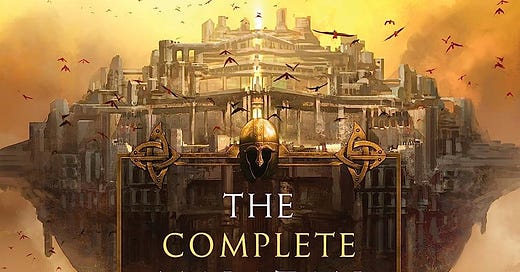Not much is said in the narrative choice between telling vs. witnessing a story. I wager most writers tell stories. But some lay out stories where you witness the events. If you’re a novel writer primarily, you might not understand the difference. If you’re a short story writer, you probably do (at least intuitively—after all, don’t you start in media res?) Here, let me use an analogy to explain.
You’re at a bar, and someone spins a yarn, explaining all the relevant details, making the important parts clear, etc. You’re being told a story. Now imagine you’re dropped into the events of that story and you’re witnessing them first hand. For example, suppose it’s World War 2, and you’re dropped into the pacific theater. You’d be confused. You won’t always know what’s going on. Things won’t be explain TO you. You’ll have to piece it together yourself. The context of wider events aren’t transparent. You may or may not get the ultimate significance of things.
While neither narrative approach is superior to the other, I’d argue witnessing a story is much more immersive. But it does take work on the readers part. And you have to be comfortable not knowing what’s going on some of the time, and putting in a fair amount of effort understanding events.
If you can commit the time, I’d recommend:
Steven Erikson is aggressively against exposition. You’re dropped into a world, and it’s up to you to figure out what’s going on. Throughout most of the books, you’ll be confused. But! Holy shit are the books immersive.
As I said, if you grew up writing and reading short stories, you’re familiar with this. You have a few thousand words to tell a story, so you can’t devote a lot of time to set up and exposition. Can you really do, say, Fretigs Pyramid? I doubt it (unless it’s novella length).
Beyond immersion, I’d argue witnessing a story has a voyeuristic quality, like you’re eavesdropping on a conversation. If done right, witnessing a story also has the benefit of not telling you who the good/bad people are (if any). You just have events cobbled together, and you, the reader, must decide who is good or bad. There’s not a semi-impartial narrator coloring the events with normative judgments.
While there are benefits to writing a story the audience witnesses, there are drawbacks. The biggest one is you’ll alienate many people. Steven Erikson’s 10 books series isn’t for everyone. You’ll be rewarded, but you’ll have to be comfortable not understand what’s going on 80% of the time. If you’re someone who likes the thought of being dropped into a foreign country, this is your style. If you don’t? Well, a more traditional narrative is for you. I suspect people will relax in this style to the degree they enjoy short stories.
When crafting a story, ask yourself: do I want my audience to experience being told a narrative, or to witness it?



